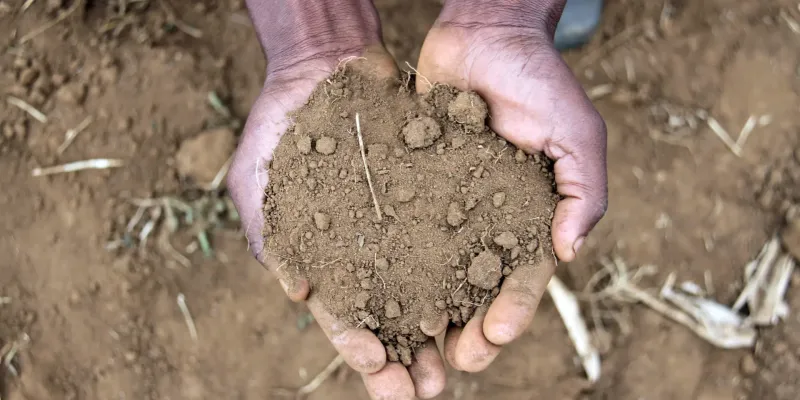Framework for sustainable national soil information systems launched at Africa Food Systems Forum
CABI and ISRIC — World Soil Information recently launched an innovative new online platform which showcases a framework for sustainable national soil information systems (SISs). Created by CABI and ISRIC, the framework is a central part of the Soil Information Systems Review, a project funded by the Bill & Melinda Gates Foundation. The launch took place at the Africa Food Systems Forum’s 2024 summit in Kigali, Rwanda.
The framework is designed to provide guidance for all key individuals and institutions who could be involved in the design and development of a new SIS or in the process of enhancing an existing one. These include SIS owners, system developers, funders, implementing partners and research institutions.
The online platform is the culmination of three years of collaborative work between CABI and ISRIC. The framework’s evidence base comes from a comprehensive review and analysis of existing and discontinued SISs. The goal of the research was to understand what has worked, what has not, and why.
The project team also incorporated feedback from the global soil data community at each round of iteration. Informed by ISRIC’s pathbreaking work on SIS development, the framework not only considers the technological factors behind the development of national SISs, such as IT infrastructure and equipment, but also the socio-institutional drivers.
Thaïsa van der Woude of ISRIC, one of the researchers on the project, said: “There’s a misconception that SISs are simply about creating the appropriate technological tools. This means that when SIS interventions are being designed, a common misstep is to skip an in-country user assessment – ignoring social, financial, and political aspects – and go straight to implementing solution-driven technologies. Whilst technology is undoubtedly important, the process of setting up and running a SIS also involves close collaboration between people and institutions, meaning that all factors (technical, financial, social, and political) play a very important role.
For instance, our research identified that SIS champions are vital. These are dedicated individuals or organisations driving design and implementation. They are pivotal to the sustainability of a SIS, particularly when it comes to securing key elements such as ensuring a sustainable funding source. We incorporated these important findings into the framework”.
The framework has four phases: initiation, planning and design, implementation and operational. The phases are split into “components”, each of which contain information on suggested activities, guiding questions, case studies, recommended tools and supporting resources. The goal is to make the process of navigating the framework as practical and as easy to understand as possible. To do this, the project team worked closely with CABI’s IT and digital departments to create a user-friendly website that people can easily navigate.
Dr Martin Parr of CABI said: “For the online framework platform, we wanted to break down the process of establishing or strengthening a SIS into easy-to-understand steps that are catered to specific user needs. There is not a one-size-fits-all technology or approach, and the SIS creation and development process can vary from country to country. What’s more, potential users of the framework will differ in terms of where they are in the design and development process. So, we needed to account for these things and ensure that whatever the user’s profile and circumstances, the platform will help them understand all the ingredients that make a SIS sustainable.”
The SIS framework was tested at a stakeholder workshop in Zambia in April and was tested again at a workshop in Kenya in August. In October, the framework will be used to develop a roadmap to help Ghana enhance its national soil information system. The framework and its supporting tools and resources are backed by a growing network of experts seeking to work with CABI, ISRIC and national stakeholders.
To support this work, a major new partnership between FARA, ISRIC, FAO and CABI will be formally launched later this year to develop an African Continent-Wide Support Team. The partnership will help strengthen SIS development in Africa by providing continent-level information products and support to key decision makers in agriculture and beyond. The framework will be one of the key products available through this partnership.
